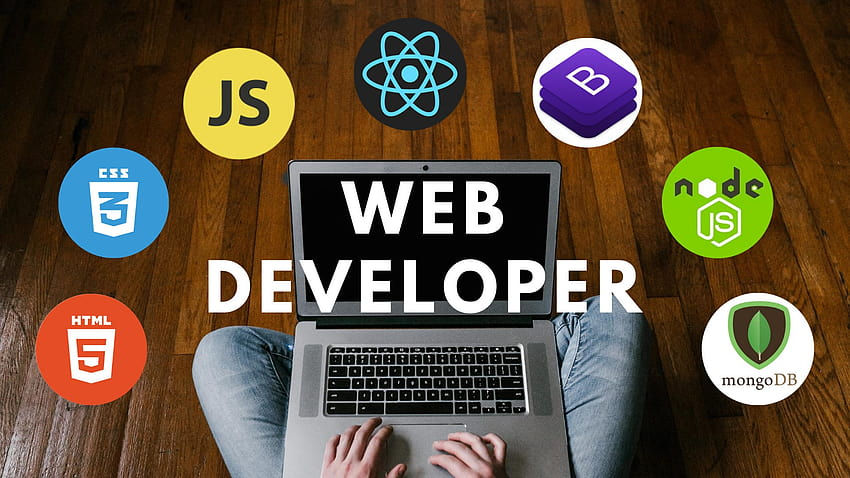Navigating the Full Stack: Essential Skills for Developers
- ashik imam
- May 11, 2024
- 4 min read
Introduction
In today's rapidly evolving technological landscape, the role of a developer has become increasingly multidimensional. No longer confined to just one aspect of software development, modern developers are expected to possess a diverse skill set that encompasses both front-end and back-end technologies. This holistic approach to development is often referred to as full stack development, and mastering it requires a combination of technical proficiency, problem-solving abilities, and a knack for staying updated with the latest industry trends. In this article, we'll delve into the essential skills that developers need to navigate the full stack effectively.

Understanding the Full Stack
Before diving into the specific skills required for full stack development, it's crucial to understand what the term "full stack" entails. Simply put, the full stack refers to the entire spectrum of technologies and components involved in building a software application, from the user interface (UI) to the server, database, and everything in between. Full stack developers are adept at working on both the front end (client-side) and back end (server-side) of an application, as well as the various layers that connect them.
Proficiency in Front-End Technologies
Front-end development involves creating the visual elements and user interface of an application that users interact with. To excel in this aspect of full stack development, developers must possess a strong grasp of front-end technologies such as HTML, CSS, and JavaScript. HTML (Hypertext Markup Language) provides the structure of web pages, while CSS (Cascading Style Sheets) is used for styling and layout. JavaScript, on the other hand, adds interactivity and dynamic behavior to web pages, making them more engaging and responsive.
In addition to these fundamental languages, knowledge of popular front-end frameworks and libraries like React, Angular, and Vue.js is highly beneficial. These tools enable developers to build complex user interfaces efficiently and maintainable, leveraging components, state management, and other advanced features.
Mastery of Back-End Technologies
While front-end development focuses on the client-facing aspects of an application, back-end development deals with the server-side logic, database management, and server infrastructure. Full stack developers need to be proficient in back-end technologies such as server-side programming languages (e.g., JavaScript with Node.js, Python, Ruby, or Java), databases (e.g., SQL, NoSQL), and server frameworks (e.g., Express.js, Django, Flask).
Understanding how to design and implement RESTful APIs (Application Programming Interfaces) is also essential for building robust back-end systems that can communicate seamlessly with the front end. Moreover, familiarity with cloud platforms such as AWS (Amazon Web Services), Azure, or Google Cloud is increasingly important, as many modern applications are deployed on cloud infrastructure for scalability, reliability, and cost-effectiveness.
Database Management Skills
Effective data management is a critical aspect of full stack development, as applications often rely on databases to store and retrieve information. Developers should be well-versed in database concepts such as data modeling, querying, indexing, and normalization. Depending on the requirements of the project, they may work with relational databases like MySQL, PostgreSQL, or SQL Server, or opt for NoSQL databases such as MongoDB, Redis, or Cassandra for flexible and scalable data storage.
Furthermore, understanding how to optimize database performance, ensure data integrity, and implement security measures to protect sensitive information are essential skills for full stack developers.
Version Control and Collaboration Tools
In a collaborative development environment, version control systems play a crucial role in managing codebase changes, facilitating collaboration among team members, and ensuring code integrity. Proficiency in using version control tools such as Git and platforms like GitHub or GitLab is indispensable for full stack developers. They should be comfortable with branching, merging, resolving conflicts, and performing code reviews to maintain a smooth and efficient development workflow.
Additionally, familiarity with project management and communication tools such as Jira, Trello, Slack, or Microsoft Teams can enhance collaboration and coordination within development teams, ensuring that projects are completed on time and within budget.

Continuous Integration and Deployment (CI/CD)
In today's fast-paced development environment, the ability to automate build, testing, and deployment processes is paramount. Full stack developers should be familiar with CI/CD pipelines and tools like Jenkins, Travis CI, or CircleCI, which enable them to streamline the development lifecycle, minimize manual errors, and deliver high-quality software at scale.
By automating repetitive tasks such as code compilation, testing, and deployment, CI/CD practices empower developers to iterate rapidly, incorporate feedback quickly, and release updates to production with confidence.
Soft Skills and Problem-Solving Abilities
In addition to technical expertise, full stack developers must possess strong problem-solving abilities, attention to detail, and a collaborative mindset. They should be adept at breaking down complex problems into manageable tasks, identifying root causes, and proposing effective solutions. Excellent communication skills are also essential for articulating ideas, collaborating with team members, and understanding client requirements.
Moreover, adaptability and a willingness to learn are crucial traits for staying abreast of emerging technologies and industry trends in the ever-evolving field of full stack development.
Conclusion
Mastering the full stack requires a multifaceted skill set that spans front-end and back-end technologies, database management, version control, CI/CD practices, and soft skills such as problem-solving and communication. By mastering these essential skills and staying updated with the latest tools and methodologies, developers can excel in building modern, scalable, and innovative software solutions that meet the demands of today's digital world. Enroll now Full Stack Developer Training course in Nashik, Kanpur, Dehradun, Kolkata, Agra, Delhi, Noida and all cities in India to kickstart your journey towards expertise in full-stack development.





Comments